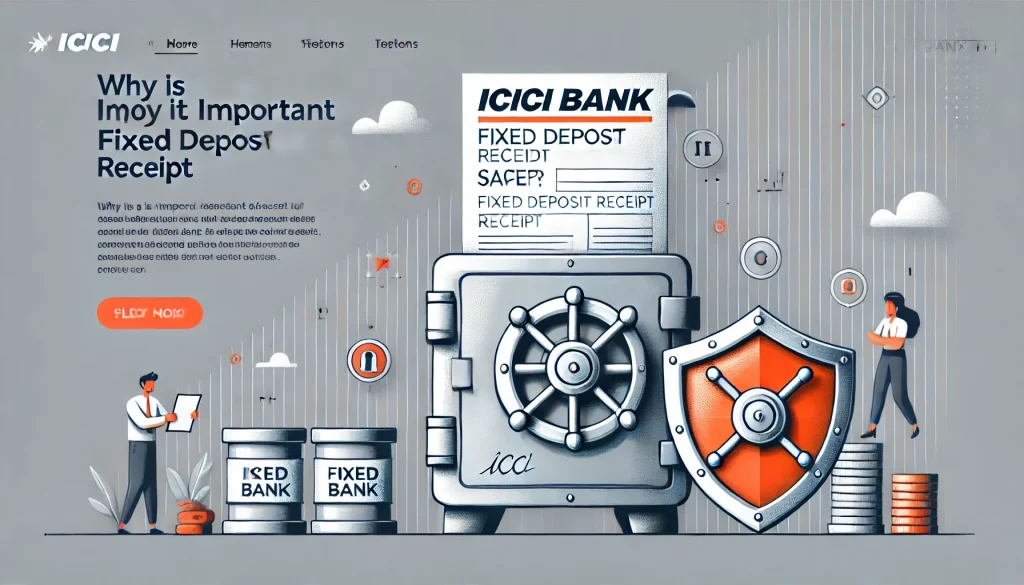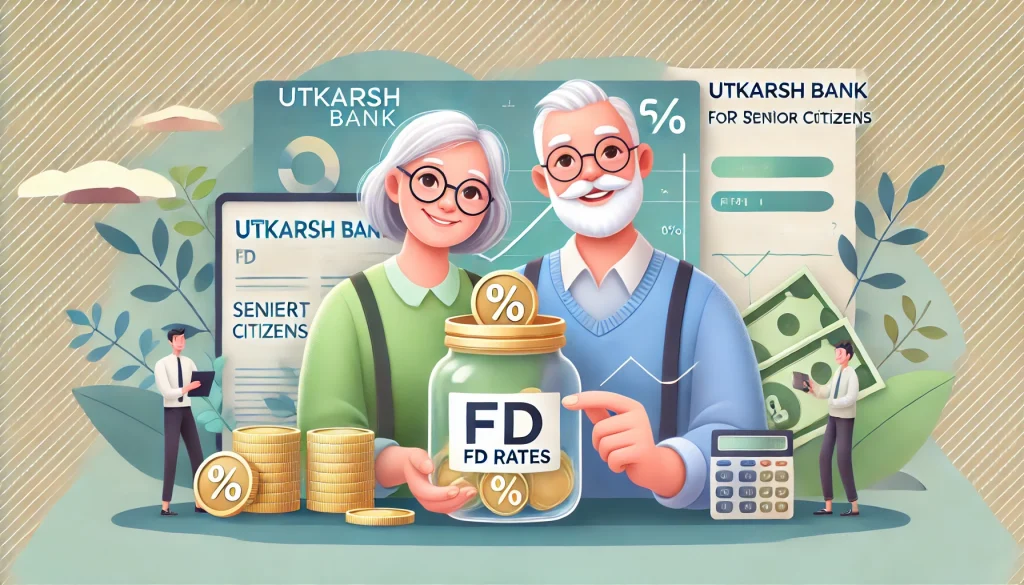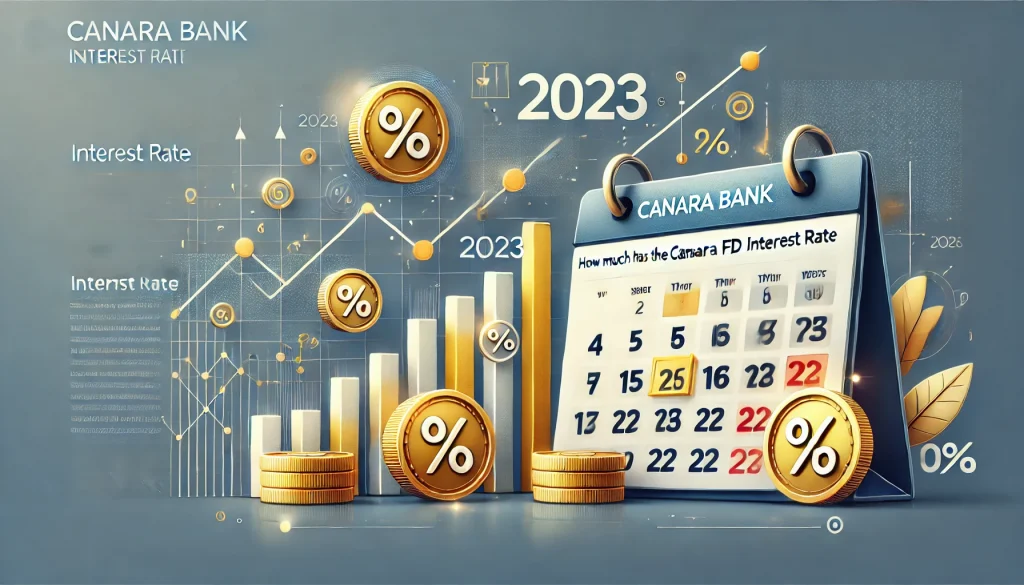
There are several investment options available in India for investors/depositors to save and grow their hard-earned money. Fixed Deposits (FD) and Recurring Deposits (RD) are two popular options among individuals looking to earn a fixed return on their savings. While both have their merits, understanding a comparison of FD vs RD can help you decide which option suits your financial goals and needs.
What is a Fixed Deposit?
A Fixed Deposit is an investment option offered by banks and other financial institutions. It allows individuals to deposit a specific amount of money for a predetermined period at a fixed interest rate. The deposited amount remains locked till the maturity of an FD tenure, while an interest income accumulates on a timely basis.
What is a Recurring Deposit?
Another investment option offered by banks and financial institutions, a Recurring Deposit, is a savings scheme that allows individuals to make regular contributions towards their deposits over a predefined period. The sum of money you invest earns interest at a fixed rate, similar to Fixed Deposits.
Now that you have a clear idea about these two investment options let’s get straight to the difference between FD and RD.
Difference Between FD and RD
When we say FD vs RD, there are a lot of similarities and dissimilarities between the two. Let’s have a look at some of the differences.
| Criteria | Fixed Deposit | Recurring Deposit |
|---|---|---|
| Definition | An investment option where an individual can deposit a money for a fixed period of time at a fixed interest rate | An investment option where an individual can make regular monthly deposits for a fixed period at a fixed interest rate |
| Deposit Frequency | One-time deposit | Monthly deposits |
| Deposit Amount | Single lump sum amount | Fixed monthly instalment |
| Tenure | Generally ranges from a few months to 10 years | Generally ranges from 6 months to 10 years |
| Interest Rate | Generally higher compared to savings accounts | Generally lower compared to fixed deposit accounts |
| Interest Calculation | Calculated on the principal amount throughout the tenure | Calculated on the reduced monthly balance |
| Maturity Amount | Principal amount plus interest at maturity | Principal amount plus interest earned every month |
| It is less flexible, as the deposit amount and tenure are fixed | An investment option where an individual can deposit money for a fixed period of time at a fixed interest rate | Offers more flexibility to a depositor to adjust the deposit amount and tenure |
| Tax Deductions | Applicable for Tax Deducted at Source if the interest income exceeds ₹10,000 in a financial year | Not applicable for Tax Deducted at Source |
| Ideal for | Individuals with a lump sum amount, such as a bonus | Individuals with a fixed monthly income, such as salary |
Benefits of Fixed Deposits
Before we dive into more details regarding recurring and fixed deposits, let’s discuss why these two are preferable investment choices for depositors. Investing in FDs provides several benefits. Here is a list of some of the benefits that you can avail in 2023 by investing in Fixed Deposits.
1. Stable Returns
FDs offer a guaranteed return on investment, making them a reliable choice for risk-averse individuals. It is a low-risk investment option, providing high-yielding returns on all investments.
2. Capital Preservation
Under a fixed deposit investment plan, the bank ensures the safety of a depositor’s initial investment or the principal amount invested. Most banks provide an insurance cover to all depositors/investors upon investing an amount more than ₹5 lakhs in an FD scheme.
3. Regular Interest Payouts
The interest payout options vary for different banks and their FD schemes. Depending on the FD type chosen, individuals can receive interest payments at regular intervals, providing a source of income.
Benefits of Recurring Deposits
There are many reasons why some depositors choose to invest their hard-earned monthly savings in Recurring Deposits. Let’s break down the details of a few.
1. Affordable Investment
RDs allow individuals to start with smaller amounts and build their savings over time. A depositor can start availing of the attractive rates of an RD by starting investment with a minimum amount of ₹100.
2. Disciplined savings habit
A recurring deposit allows depositors to make small investments out of idle funds. By making a fixed monthly contribution in RDs, depositors/investors can inculcate a habit of regular saving and financial discipline
3. Higher interest rates
Through a recurring deposit, a depositor can steadily grow his/her savings by availing its competitive interest rates. Compounded quarterly, the interest income earned from recurring deposits is comparatively higher than the savings account.
Common Features of FD and RD
While there are some differences between RD and FD, the two also share a few similarities. Now let’s explore the salient features that are common between the investment options, that is, Fixed Deposit and Recurring Deposit.
- Although different, the two are fixed-income securities, offering stable income and secured returns on investment at the time of maturity or during the tenure.
- The returns and maturity amount of these investments are easy to track and can be easily determined based on the applicable rate of interest.
- Both fixed and recurring deposit schemes come along with a loan/overdraft against investment, premature withdrawal and joint account opening facilities.
- A depositor can conveniently book any of the two types of deposits by either manually consulting a bank representative or visiting a bank’s website.
FD vs RD – Which is Better?
While comparing recurring deposits vs fixed deposits, a depositor has to choose the one best suited to him/her as per their financial requirements. Determining whether FD or RD is the right option for you depends on a few factors. Let’s read about what things you should consider while planning your investment in any of the two deposits.
1. Financial Goals and Investment Horizons
An FD is a more suitable option for you if you have a lump sum amount and a long-term investment horizon. An RD is a better option for individuals with regular earnings looking for a systematic savings approach with shorter investment horizons.
2. Risk Appetite and Liquidity Needs
FDs provide a stable, low-risk investment option, making them ideal for risk-averse individuals. On the other hand, the flexibility of a recurring deposit makes it suitable for those with moderate risk tolerance and periodic liquidity needs.
3. Planning for Future Needs
Consider your financial goals, such as saving for a down payment, education expenses, or retirement. To determine which investment option among the two aligns better with your future needs, a depositor/investor must evaluate the lock-in period, returns, and liquidity options of FDs and RDs.
Conclusion
Hopefully, now you can make an informed decision when it comes to choosing FD vs RD for a secured investment. Be it a fixed deposit or recurring deposit, you must make sure to verify all the associated terms and conditions while making a decision. Furthermore, it is in your best interest to consult with a financial advisor to understand the nuances of these investments and thereafter choose the option that aligns best with your requirements.
FAQs
If you have a lump sum amount that you can invest upfront, then FD is a better option for short-term savings.RDs are suitable for individuals who want to save small amounts regularly over a longer period.
While there are several interest payout options available, like monthly, quarterly and yearly, in the case of fixed deposit, a depositor only receives his/her interest income at the end of the tenure of a recurring deposit. This is also a common difference between fixed and recurring deposits.
Yes, a minor can invest in fixed-income securities, be it fixed deposit or recurring deposit. However, minors below 10 years of age can operate a deposit account only if they are under legal guardianship.
Depending upon the associated terms and conditions, the maximum amount that can be deposited in FD and RD schemes varies for different banks and financial institutions. Therefore, consult with your preferred bank before depositing a lump-sum investment.
In the case of FD, the nominee can claim maturity under grave circumstances, such as the depositor’s death. However, the nominee can continue to hold an RD account with Post Office Savings Bank for a year in case the depositor dies.
Disclaimer
This article is solely for educational purposes. Stable Money doesn't take any responsibility for the information or claims made in the blog.


